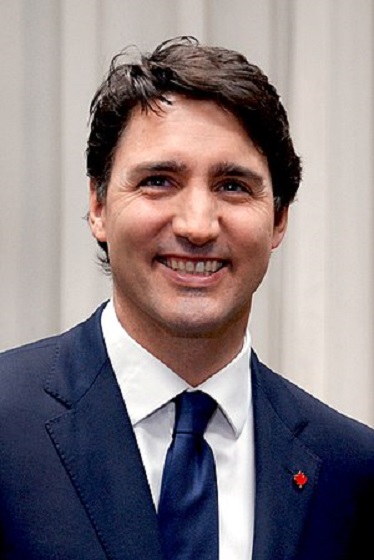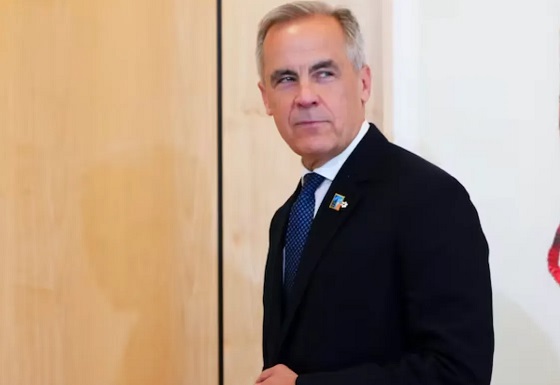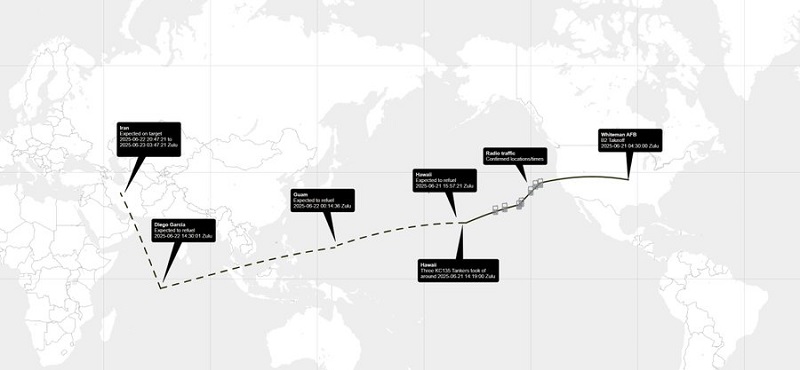Health
Red Deer Hospital Lottery 2025 Winners

The Red Deer Regional Health Foundation is thrilled to announce the winners of this year’s Red Deer Hospital Lottery prizes – including the Dream Home, a $100,000.00 cash prize, and Mega Bucks 50.
James Smith of Spruce View has won the $100,000.00 cash prize.
Montey Brehaut of Red Deer has won the Mega Bucks 50 jackpot, taking home $301,702.50.
The grand prize Sorento Custom Homes Dream Home, including furnishings by Urban Barn and worth $1,074,472 – has been awarded to Oscar Gunnlaugson of Sylvan Lake.
The winner announcements took place at noon on June 26 , 2025 – and was streamed live on Facebook from Red Deer Regional Hospital Center.
“We’re excited to celebrate this year’s winners and deeply grateful to everyone who supported the lottery,” said Manon Therriault, CEO of the Red Deer Regional Health Foundation. “Funds raised will directly enhance patient care at Red Deer Regional Hospital Centre.”
This year’s lottery proceeds will fund essential new and replacement equipment, ensuring Red Deer Regional Hospital Center can continue to serve the 500,000 people who rely on it. While plans for the hospital expansion move forward, healthcare doesn’t wait. Patients in our community need access
to life-saving technology today, and supporting Red Deer Hospital Lottery has made that possible.
A full list of winners, including electronics prize recipients, will be posted on July 2 at reddeerhospitallottery.ca.
Winners will also receive instructions on how to claim their prizes by mail.
The keys to the Dream Home will be presented at a special ceremony this summer.
Health
‘Transgender’ males have 51% higher death rate than general population: study

From LifeSiteNews
Research found that men who underwent a ‘gender transition’ using hormones have a 51% higher mortality rate than the general population and a ‘threefold’ greater risk of cardiovascular deaths.
A newly published study has found that males’ use of estrogen to present as “female” triples their risk of cardiovascular disease, while also heightening the risk of stroke, blood clots, depression, and cognitive impairment.
The journal Discover Mental Health on June 12 released a variety of findings regarding the negative impacts of estrogen use in males attempting to transition to “female.” One of the most significant was that current estrogen use “was associated with a threefold increased risk of death from cardiovascular events.”
In fact, a study of 966 “female transitioned” males were found to have a mortality rate 51 percent higher than that of the general population. Their main causes of death included cardiovascular disease (21 percent), cancer (32 percent), suicide (7.5 percent), and infection-related disease (five percent).
Estrogen use by males amplified other cardiovascular risks, especially with prolonged use. One meta-analysis found a 30 percent higher rate of stroke among gender-confused men who took estrogen compared with men who did not.
A review also found “strong evidence” that estrogen use by men increases their risk for vein blood clots “over fivefold.”
Estrogen use was also found to have a detrimental cognitive impact on men. For example, so-called “female transitioned” males were found to have lower scores than both their other male counterparts and women in “information-processing speed and episodic memory.”
In addition, elevated symptoms of depression were “associated with increased serum levels of estradiol” for men under the age of 60.
This recent study confirms 2023 study that found that all gender-confused individuals, whether men attempting to present themselves as women or women attempting to present themselves as men, were at significantly increased risk for a range of deadly cardiovascular conditions, including strokes, heart attacks, high blood pressure, and elevated cholesterol levels.
A 2019 study published by the National Institutes of Health (NIH) National Library of Medicine also found:
Cardiovascular disease (CVD) is the leading disease-specific cause of death for [so-called] transgender people undergoing [transgender procedures], with only suicide claiming more lives as the leader of all cause mortality.
However, for [gender-confused males], the risk of death from CVD is 3-fold higher than for all other groups.
Research reported by both the British Heart Association and the American Heart Association that same year arrived at similar findings:
“We already know sex hormones are important to cardiovascular health, and now we have people being exposed to high levels of sex hormones they normally would not have, which could be associated with cardiovascular benefit or risk,” said Dr. Christian Delles, a professor at the Institute of Cardiovascular and Medical Sciences at the University of Glasgow.
Business
Younger Casino Bettors Are Upping the Ante on Risky Gambling in British Columbia, Documents Show

By Stanley Tromp
Younger casino players in British Columbia are significantly increasing high-risk gambling behaviours, while “gambling literacy” has declined over the past year, according to data from the province’s gaming provider, the BC Lottery Corporation.
This and other concerns were outlined in the Player Health Tracker Report by Ipsos Research, released in July 2024 and commissioned by BCLC. The Bureau obtained six reports totaling 903 pages through a Freedom of Information request. The findings point to an alarming rise in high-risk gambling among younger bettors in the second quarter of fiscal 2024/2025—raising fresh questions for BCLC, an agency previously criticized for prioritizing revenue over social responsibility.
“Younger players are known to display more high-risk behaviours, believe more strongly in gambling myths, and play more games, especially high-risk ones,” the report said.
To address this, Ipsos recommended that “BCLC could consider targeting younger casino players in its campaigns geared toward casino players, with messaging related to increasing gambling literacy and promoting safer gaming.”
The concerning trend comes under the watch of Premier David Eby. In 2018, when Eby served as B.C.’s Attorney General, he told CBC that his government should be doing much more to help gambling addicts.
Eby also pointed out that his NDP government had moved responsibility for the gaming industry from Finance to the Attorney General’s office in 2017, because “the B.C. Lottery Corporation should not be responsible for both revenue generation and regulation.” That decision was later reversed, with oversight returning to the Finance Ministry.
In a warning back in 2020, an internal briefing note from the B.C. Ministry of Public Safety highlighted the “rapidly changing” online betting market as a source of mounting risks.
The note said more people were gambling “in an environment that may not have appropriate responsible gambling and integrity controls, that may allow minors to gamble, and that may carry an increased risk for fraud and money laundering.”
The new survey results were based on 498 interviews with adults in British Columbia who had played at least one BCLC game in the past year. Three of the reports track changes in gambling behaviours from the first to the third quarter of fiscal year 2024/25—that is, from April to December 2024.
PlayNow.com is BCLC’s internet gambling platform, featuring online table games, slots, and sports betting. It was launched in 2004 and later expanded to other western provinces.
In the first quarter (April–June 2024), “PGSI behaviours increased significantly among PlayNow players,” according to the Ipsos report. (The Problem Gambling Severity Index, or PGSI, is a nine-item self-report scale measuring risky gambling behaviours in the general population.)
The highest-risk PlayNow users were identified as young urban males—“the least likely to feel responsible for what happens to them.” Their gambling motivations include “feeling tense and wanting to be in the zone,” factors not observed in other segments. They were also found to be the least likely to engage in responsible play, despite recognizing risks in their own behaviour.
In the second quarter (July–September 2024), PlayNow players’ high-risk PGSI scores trended upward, while gambling literacy declined. Ipsos warned: “Given that PlayNow players remain a more at-risk group, BCLC could focus on reinforcing gambling literacy and safer gambling behaviours.” It advised close monitoring to identify whether preventative actions were needed.
In the third quarter (October–December 2024), Ipsos observed a tentative improvement: “High-risk PGSI has declined significantly among PlayNow players, although the shift should be interpreted with caution due to lower base sizes… high gambling literacy has rebounded.”
Overall, Ipsos found that online players demonstrated stronger belief in gambling myths and more problematic behaviours than retail players. Their pre-commitment habits—such as setting spending limits—and overall gambling literacy were weaker by comparison.
Sports betting remained a distinct concern. “Given that online sports bettors continue to be a higher-risk group,” Ipsos wrote, “BCLC could benefit from maintaining targeted initiatives that tackle the specific challenges of sports betting and promote safer gambling practices, especially during major sporting events such as the Super Bowl, March Madness, and the NHL and NBA play-offs in the coming months.”
Casino players were a more at-risk group in the first quarter. In the second quarter, there was a significant drop in gambling literacy among this segment. But by the third quarter, Ipsos reported some improvements: “Casino players display some improvement in high-risk PGSI, high pre-commitment, and high gambling literacy this quarter.” Ipsos attributed this to a higher proportion of casual casino players compared to moderate or high-frequency players.
The public was also surveyed on which casinos or gaming community centres they had visited in the past 12 months. River Rock Casino in Richmond was the most reported location, with 27% of respondents naming it. This was followed by Vancouver’s Parq Casino (24%), Burnaby’s Grand Villa Casino (23%), and Coquitlam’s Hard Rock Casino (20%). Other B.C. casinos saw significantly lower visitation numbers.
However, from January to December 2024, “casino players are significantly more likely to believe several gambling myths compared to last year,” Ipsos warned. These included beliefs that: (1) casino staff can change game outcomes, (2) some slot machines are “hot” and due for a big jackpot, and (3) a payout rate of 85% means players will get back $85 of every $100 spent.
Ipsos cautioned that any gains in safer gambling behaviours and literacy may not be sustainable if belief in these myths continues to grow. It recommended that BCLC intensify efforts to dispel such misinformation.
Keno players were also flagged as high-risk during the second and third quarters, and showed low gambling literacy. “When looking at product cross-play, most Keno online players also play Keno at retail locations, and thus online players also exhibit a more at-risk profile,” Ipsos reported. (In February 2024, a B.C. player won $1 million playing Keno—the largest payout in BCLC history.)
BCLC has stated that its GameSense program provides players with information about how gambling works and offers tools to support informed decisions. The program aims to improve gambling literacy by helping players understand the odds of winning, distinguish between chance- and skill-based games, dispel common myths, and locate available resources.
However, in the second quarter, pollsters found that “awareness of a safer gambling education program in BC significantly decreased, as did awareness of the GameSense program across all business units.” In the third quarter, results were mixed: awareness of a safer gambling education program improved, and GameSense name recognition held steady, but both familiarity with and usage of the program declined.
The Bureau also obtained BCLC’s Key Performance Indicator (KPI) Tracker reports by Harris Insights for November 2024 (Q2) and February 2025 (Q3). Many pages were redacted by BCLC on the grounds that their release would cause financial harm.
These tracker documents monitor the corporation’s core business indicators and are reported to shareholders in annual statements and service plans. They are also used internally to evaluate performance across business units.
The Q2 report noted that “lottery-only players are declining and shifting to including casino and PlayNow games.” It also found that trust in BCLC games among facility players was significantly higher that quarter. Notably, PlayNow.com sports bettors used illegal betting websites significantly less in Q2 compared to Q1.
In Q3, cross-play between lottery, casino, and PlayNow increased from FY2023/24 to FY2024/25, as did the number of casual casino players and overall participation on PlayNow. At the same time, casual lottery play—such as Lotto 6/49, Lotto Max, Daily Grand, pull tabs, and scratch tickets—declined from Q2 back to Q1 FY2024/25 levels. Ipsos attributed this drop mainly to a loss of casual retail players, although overall lottery participation over the past year remained stable.
Finally, The Bureau reviewed a December 2024 report on BCLC’s “Social Purpose and Brand,” prepared by Unity Insights and Angus Reid.
Their survey data showed that core players across all BCLC facilities—casinos, community gaming centres, and bingo halls—had increased quarter-over-quarter. However, PlayNow sports bettors were increasingly using other websites for wagering, and the number of users betting exclusively on PlayNow declined.
The report also evaluated BCLC’s Integrated Enterprise Strategy, which aims to “increase the positive community and economic impact of gambling entertainment… and to leverage the BCLC brand to bring the commitment to social purpose to life.”
“Generally, consumers seem to articulate a sense of skepticism when it comes to any organization claiming to provide social benefits,” the pollsters wrote. “Virtue signaling was brought up in a negative light (moral grandstanding), where many did not understand how an organization could exist to provide social benefits while balancing profit generation.”
The report posed a direct challenge to BCLC’s leadership: What is the goal of its Social Purpose platform? “Are we trying to use our commitment to social purpose as a lever for acquisition, or is this truly about uplifting a social cause regardless of the business outcome?”
The authors suggested reframing the approach to center on the public. “BCLC players are committed to social purpose, and we thank them for that,” they wrote—before floating a new brand slogan: “BCLC = British Columbians Love Community.”
Stanley Tromp is a graduate of the University of British Columbia Political Science department and an expert on Freedom of Information.
The Bureau is a reader-supported publication.
To receive new posts and support my work, consider becoming a free or paid subscriber.
Invite your friends and earn rewards
-

 MAiD8 hours ago
MAiD8 hours agoCanada’s euthanasia regime is not health care, but a death machine for the unwanted
-

 COVID-191 day ago
COVID-191 day agoOntario man launches new challenge against province’s latest attempt to ban free expression on roadside billboards
-

 Business1 day ago
Business1 day agoFederal government should finally cut Trudeau-era red tape
-

 Alberta1 day ago
Alberta1 day agoCanadian Oil Sands Production Expected to Reach All-time Highs this Year Despite Lower Oil Prices
-

 Business7 hours ago
Business7 hours agoOttawa Funded the China Ferry Deal—Then Pretended to Oppose It
-

 Business1 day ago
Business1 day agoTaxpayers Federation presents Teddy Waste Awards for worst government waste
-

 International1 day ago
International1 day agoPresident Xi Skips Key Summit, Adding Fuel to Ebbing Power Theories
-

 armed forces5 hours ago
armed forces5 hours agoMark Carney Thinks He’s Cinderella At The Ball




